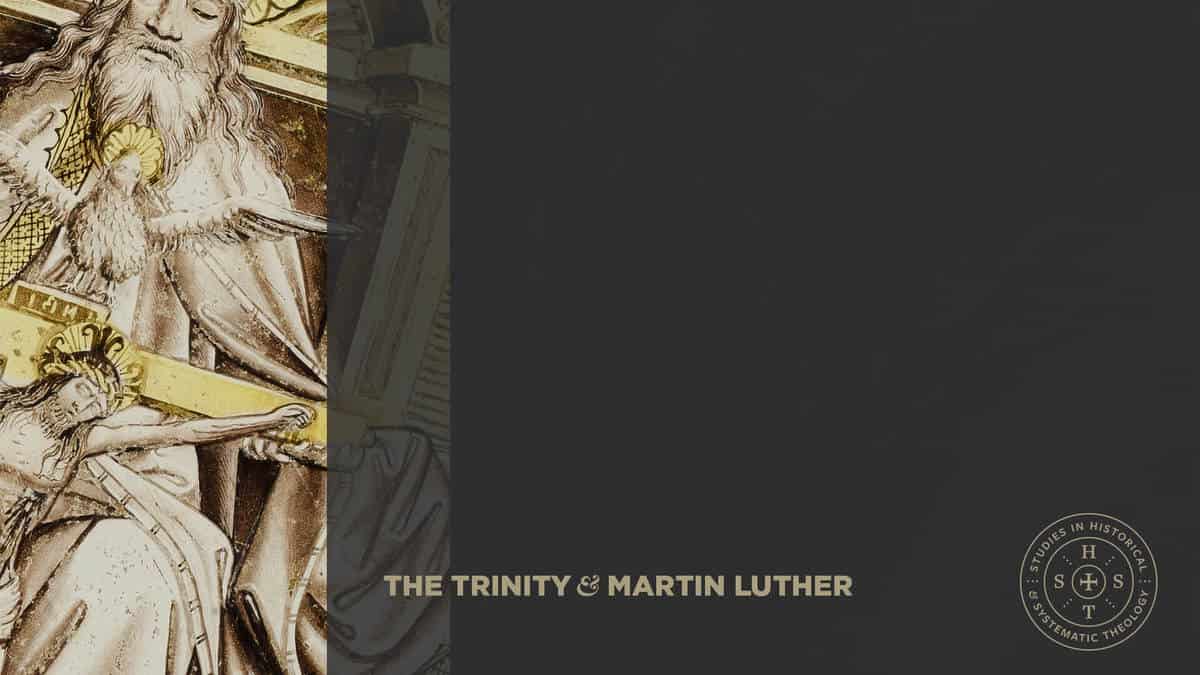Scholars often portray Luther as a heroic revolutionary, totally unlike his peers and forebears. But is this accurate? At times this revolutionary model of Luther has come to some shocking conclusions, particularly concerning the doctrine of the Trinity. In The Trinity and Martin Luther, Christine Helmer uncovers Luther’s trinitarian theology, upending the stereotypes attached to this historic figure.
In this excerpt from the new preface to the revised edition, Helmer shows us how her research led to a new perspective on Luther and the Trinity, giving us valuable context for the place of this work in scholarship.
When I began my studies of Luther at Yale University in the early 1990s, the doctrine of the Trinity constituted a vibrant field of research—everywhere, that is, except in Luther scholarship, which maintained that Luther was above all else a theologian of the cross. Basing their research on the portrait of Luther worked out in the early twentieth-century Luther Renaissance, Luther scholars focused primarily on the young Luther. They identified the young monk’s experience of grace and salvation as leading him to the doctrine of justification by faith that was the theological breakthrough precipitating the Protestant Reformation. Christ’s cross was the place where God revealed divine mercy. It was this revelation that, when preached to sinners, confronted them with both the inefficacy of any human works and the sufficiency of divine forgiveness. Likewise, it was this perception of a seismic shift from the Catholic to the Protestant paradigm that resulted in my interest in the topic of Luther and the Trinity being greeted with little more than quasi-polite skepticism. Luther was a theologian who preached Christ, not the Trinity. His theology had to do with the word of divine promise that announced as it created the reality of divine forgiveness.
Consensus among Luther scholars and Lutheran theologians said that the Trinity was a speculative doctrine. Barth’s Trinitarian turn, on the one hand, had situated the immanent Trinity, or the Trinity in eternity, at the start of his theological system, before the doctrines of creation and redemption. For Luther scholars, on the other hand, the Reformer’s oft-cited polemic against “speculation” into the divine majesty was taken as fundamentally prohibitive of such speculative theologizing. Furthermore, Lutheran theologians in the twentieth century had doubled down on Luther’s insistence that knowledge of God is available “under the opposite” (sub contrario). It was to be found at those places where God reveals the divine mercy under its opposite, specifically at the cross of Christ. Any speculation on aspects of the divine being in eternity was to disobey God’s injunction against being concerned with matters with which humans ought not to be concerned.
But what emerged as my study moved forward through a process of educated guesswork and textual discovery was the opposite of what had been so long maintained as Luther’s Reformation theology. In the sermons, hymns, catechisms, and exegetical works I was reading, I found not only expositions of the Trinity but evidence that Luther viewed the Trinity in eternity as essential to Christian piety as well as necessary for knowledge of God. What I did not find was any anxiety about theological speculation!
* * *
In his endorsement of The Trinity and Martin Luther, Fred Sanders says, “Helmer’s book offers a very close reading of a handful of texts that surprise, illuminate, and suggest ways forward for theology today.” Explore more about theology or uncover this lost piece of Luther’s thought—get The Trinity and Martin Luther today!





